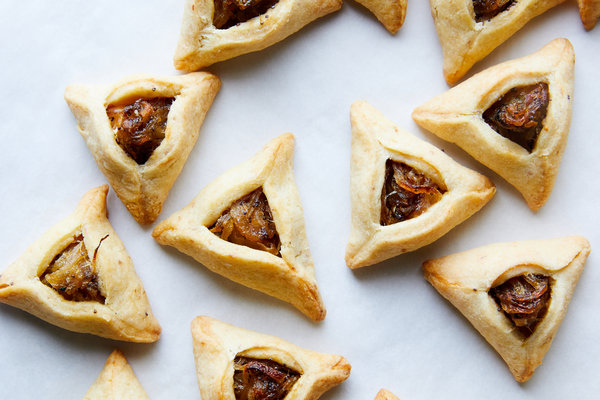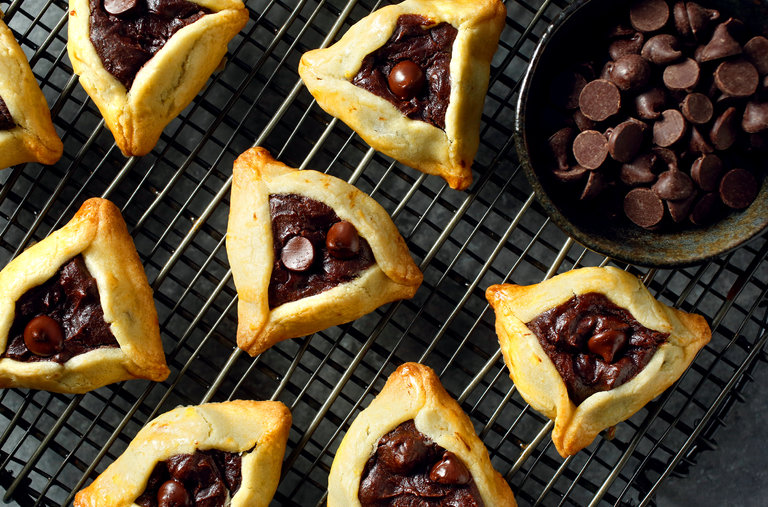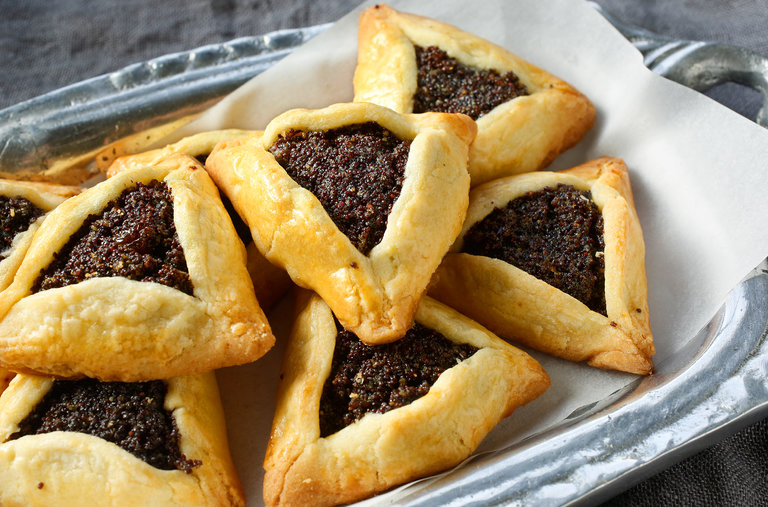Hamantaschen, as essential to Purim as matzo is to Passover, are typically sweet, the triangular cookies filled with a jam that’s often made from poppy seeds.
During Purim, which begins this year on the evening of March 20, Jews are encouraged to indulge in playful revelry, eating rich pastries, drinking to excess and dancing in the synagogue — something like Mardi Gras, and coincidentally coming around the same time of the year.
Originally called mohntaschen, hamantaschen date back at least to 16th-century Germany, when mohn, or poppy seeds, were eaten as a snack during winter, when little grew. The seeds, from the flower that produces the powerful drug opium, were also turned into jam and encased in pastries for special occasions. (“Could it be possible that they were celebrating this holiday by memorializing this intoxicating plant medicine?” asked Michael Pollan, the author, most recently, of “How to Change Your Mind,” about psychedelics — and who, by the way, prefers poppy seed hamantaschen to all other kinds.)
The word “hamantaschen,” a Yiddish term, is a reminder of the Jewish peoples’ deliverance from their enemy Haman, an official under the Persian King Ahasuerus, also known as Xerxes I, in the fifth century B.C. The name referred to Haman’s pockets or purses, and is now associated with his tricornered hat. (The hat is lore; he didn’t wear it.)
According to the central story of the Book of Esther, called the megillah and read aloud every year, Haman had planned to kill all of Persia’s Jews. However, when Queen Esther told the king of Haman’s plot, he instead ordered Haman’s execution.
On Purim, both children and adults shake groggers (or noisemakers) whenever they hear Haman’s name in the reading, and, of course, munch on hamantaschen.
Although I still use poppy seeds in my sweet hamantaschen, I have created this savory spinoff, tucking crumbled feta under thyme-scented caramelized onions for the filling. To please traditionalists, you can still fill some of the buttery dough with jam. Whatever you do, gift hamantaschen with fresh fruits to friends and family as a “mishloach manot” — the sending of portions — another delicious Purim tradition.







